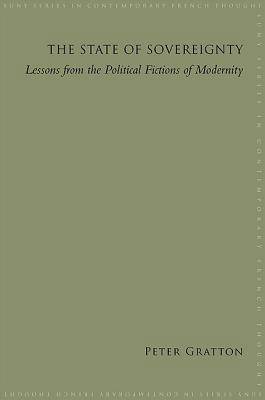
- Afhalen na 1 uur in een winkel met voorraad
- Gratis thuislevering in België vanaf € 30
- Ruim aanbod met 7 miljoen producten
- Afhalen na 1 uur in een winkel met voorraad
- Gratis thuislevering in België vanaf € 30
- Ruim aanbod met 7 miljoen producten
Omschrijving
Considers the problems of sovereignty through the work of Rousseau, Arendt, Foucault, Agamben, and Derrida.
Following up on the fables and stories surrounding political sovereignty-once theological, now often nationalist-Peter Gratton's The State of Sovereignty takes aim at the central concepts surrounding the post-9/11 political environment. Against those content to conceptualize what has been called the "sovereign exception," Gratton argues that sovereignty underwent profound changes during modernity, changes tracked by Rousseau, Arendt, Foucault, Agamben, and Derrida. Each of these thinkers investigated the "fictions" and "illusions" of claims to sovereign omnipotence, while outlining what would become the preeminent problems of racism, nationalism, and biopower. Gratton illustrates the principal claims that tie these philosophers together and, more importantly, what lessons they offer, perhaps in spite of themselves, for those thinking about the future of politics. His innovative readings will open new ground for new and longtime readers of these philosophers alike, while confronting how their critiques of sovereignty reshape our conceptions of identity, freedom, and selfhood. The result not only fills a long-standing need for an up-to-date analysis of the concept of sovereignty but is also a tour de force engaging readers in the most important political and philosophical questions today.
Specificaties
Betrokkenen
- Auteur(s):
- Uitgeverij:
Inhoud
- Aantal bladzijden:
- 299
- Taal:
- Engels
- Reeks:
Eigenschappen
- Productcode (EAN):
- 9781438437859
- Verschijningsdatum:
- 9/06/2012
- Uitvoering:
- Hardcover
- Formaat:
- Genaaid
- Afmetingen:
- 160 mm x 234 mm
- Gewicht:
- 521 g

Alleen bij Standaard Boekhandel
Beoordelingen
We publiceren alleen reviews die voldoen aan de voorwaarden voor reviews. Bekijk onze voorwaarden voor reviews.









